Stay in the know on all smart updates of your favorite topics.
Aan de bar met Inge Oskam: circulaire economie

Bubbels zijn er om op te drinken, niet om in te blijven zitten. Pak daarom je drankje en snacks erbij en schuif dinsdagmiddag 2 februari aan de bar met Inge Oskam. Onze digitale barman Luuk vraagt Inge het hemd van het lijf over circulaire economie. Wat is dat eigenlijk en wat moeten we ermee?
Inge Oskam
Dr Ir Inge Oskam geeft leiding aan de onderzoeksgroep Circulair Ontwerpen en Ondernemen. Samen met bedrijven, publieke organisaties, kennisinstellingen en studenten onderzoekt het lectoraat nieuwe manieren van ontwerpen, produceren en ondernemen, waarmee afgedankte producten en materialen kunnen worden omgezet in waardevolle toepassingen, ook wel repurpose genoemd.
Aanmelden
Het gesprek zal plaatsvinden via ZOOM en is gratis. Iedereen is welkom:
https://uva-live.zoom.us/j/82893491235
Inkopen met Impact - hoe start je daarmee?

Met elke euro die je als organisatie uitgeeft aan producten en diensten, heb je de keuze voor het duurzamer, eerlijker of innovatiever alternatief. Denk aan circulaire en energiebesparende producten en diensten, maar ook aan verantwoorde inzet van technologie. Daarmee is inkopen een belangrijke driver voor een slimme, groene en gezonde toekomst. Budgetten worden anders ingezet en systemen en gewoontes worden zo doorbroken.
De Amsterdam Economic Board heeft inmiddels een heel Insights dossier gericht op Inkopen met Impact. Daarin vind je achtergrondartikelen, maar ook quickstarts die je op weg helpen bij het verantwoorder inkopen van bijvoorbeeld bedrijfscatering, werkkleding of bouw en onderhoud van je organisatie. Je vindt al deze quickstarts in het dossier Inkopen met Impact. Je vindt er ook links naar hoe je je kunt aansluiten bij activiteiten van de Board die je helpen met beter inkopen.
GO!-NH Versnellingsprogramma's - inschrijven voor 9 februari

GO!-NH is een serie groeiversnelling programma’s (accelerators) van de provincie Noord-Holland. Deze zijn opgesteld de economie in Noord-Holland te stimuleren met focus op de sectoren: bouw, beton, chemie, fashion, agri & food, verpakkingsmateriaal, handel en horeca. De thema’s voor de ontwikkeling van de circulaire economie in Noord-Holland zijn:
- Energietransitie
- Duurzame Mobiliteit
- Agri-food
- Circulaire Economie; Afval als Grondstof; Modulair ontwerp; Plastics; Textiel
Deze speciaal ontwikkelde programma’s ondersteunen startups en MKB’ers bij het op de markt brengen en opschalen van innovatieve producten en diensten op het gebied van duurzaamheid. Met trainingen, tools en professionele coaching door experts ontwikkel je jouw bedrijf.
GO!-NH heeft drie verschillende trajecten samengesteld, zodat ondernemers de beste ondersteuning krijgen die past bij de fase en omvang waarin hun bedrijf zich bevindt. Daarnaast vormt de GO!-NH Academy een laagdrempelige ontmoeting met GO!-NH waarbij masterclasses ook los gevolgd kunnen worden.
Masterclass: Hoe bepaal je de impact van jouw circulaire initiatief?

Ben je als ondernemer, docent of student bezig met een lokaal circulair initiatief en wil je een beeld krijgen van de (duurzaamheids)impact ervan? Doe dan mee met de online masterclass van de Hogeschool van Amsterdam (HvA) op 4 of 11 februari. Tijdens de interactieve webinar helpen HvA-onderzoekers Krispijn Faddegon (psychologie/ sociologie) en Maarten Mulder (circulair ontwerpen) om jouw initiatief verder te brengen.
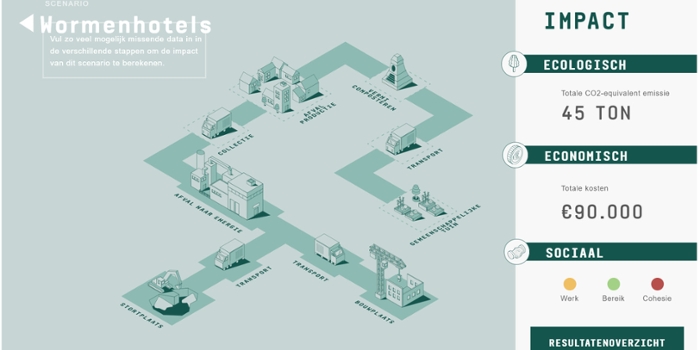
Wereldwijd dreigen grondstoffen op te raken die belangrijk zijn voor onze manier van leven. Daarmee overschrijden we de grenzen van wat de aarde ons kan bieden. Door circulair met deze grondstoffen om te gaan, kunnen we deze trend keren. Hoe zorgen we ervoor dat we in 2030 al 50% minder primaire grondstoffen gebruiken?
CIRCULAIR ONDERNEMEN
Circulair ondernemen wordt door overheden gestimuleerd en ook op lokaal niveau neemt het aantal circulaire initiatieven toe. Denk aan wormenhotels of het hergebruik van houten meubels en textiel. Het kan echter lastig zijn om te bepalen wat de effecten ervan zijn, zoals de CO2-uitstoot of extra arbeid. Hoe weet je of het op een bepaalde manier hergebruiken van materialen ook daadwerkelijk bijdraagt aan een betere wereld? Of op kleinere schaal: een betere stad of buurt?
HVA MASTERCLASS
Om daar een inschatting van te kunnen maken, biedt de HvA een masterclass aan: Hoe bepaal je de impact van een lokaal circulair initiatief? In de masterclass bekijken we een initiatief vanuit drie duurzaamheidspijlers:
- ecologische impact, zoals CO2-emissies;
- economische impact, waaronder kosten en eventuele opbrengsten;
- sociale impact, zoals sociale cohesie of educatie.
‘Tijdens deze online masterclass gaan we specifiek in op jullie eigen initiatieven en vragen’, vertelt onderzoeker Mulder (HvA). ‘Daarnaast bieden we voorbeelden rondom het hergebruik van hout en GFE-afval. Hiervoor gebruiken we onder andere onze ontwikkelde Re-Store-tool, waarmee de ecologische, economische en sociale impact ingeschat kunnen worden voor GFE-initiatieven.’
METEN VAN IMPACT
Het meten van impact rondom circulaire initiatieven is een vakgebied in ontwikkeling, waarbij discussie en vragen vanzelfsprekend zijn. De masterclass biedt een raamwerk om vanuit meerdere invalshoeken naar circulaire initiatieven te kijken en helpt je ontdekken op welke indicatoren je moet letten en hoe je die kunt meten. Doe en denk mee en laat je inspireren door lokale circulaire initiatieven.
INFO MASTERCLASS
4 februari, 15.00-17.00 uur - Voornamelijk voor medewerkers HvA
11 februari, 15.00-17.00 uur - Voornamelijk voor externen
52 weken duurzaam, we gaan het gewoon doen.
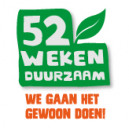
52wekenduurzaam nodigt je uit om je eigen leven stap voor stap duurzamer te maken. Een jaar lang iedere week een kleine verrassende en duurzame stap. Om te zien of het bij je past. Word je er gelukkig van, dan hou je het vol. Zo niet, dan skip je het. Wij onderzoeken wat er wel kan. Uitdagend, leuk, leerzaam en gratis. Loop je een stukje met ons mee?
Wij denken dat we met elkaar op een gemakkelijke manier veel duurzamer kunnen worden. Door elkaar te inspireren en uit te dagen. Door leuke en verrassende dingen te onderzoeken. Om zo je eigen versie van een duurzame leefstijl te ontwikkelen. We streven naar 5000 deelnemers in 2021. Hoe meer mensen meedoen, hoe beter. Voor onze Totale Impact Score, maar ook voor jezelf, want samen is veel leuker dan alleen. Dus geweldig als je nu al je gezin, je buren, vrienden en collega’s inspireert om ook mee te doen.
Placemaking Week India 2021

Calling environmental scientists, heritage conservationists, place brandologists, local administrators, urban designers, architects and citizen intermediaries to engage with Placemaking India in the run-up to its annual meeting.
We at #PlacemakingIndia are planning a moveable feast of beachfront, backwaters, riverbank and lakeside encounters in and around Mangaluru on the southwest coast of India in early December 2021.
Join us on the shores of the Arabian Sea in our India-wide mission to shake up spaces into #loveableplaces. Signal your interest to info@thesmartcitizen.org
#placemaking #communalspaces #heritagebuildings #culturaltourism #watersideplacemaking #urbanplanning
100,000 companies residual waste-free by 2025
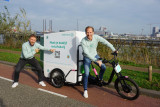
Scroll down for the English version
Seenons zamelt met datagedreven logistiek stromen gescheiden in
De circulaire economie wordt het nieuwe normaal. En data zijn de zuurstof van dat nieuwe normaal. In de Metropool Amsterdam werken tal van organisaties al hard aan circulaire initiatieven waarbij data een belangrijke rol speelt. Zo ook Seenons, dat bedrijven helpt bij duurzame afvalscheiding en -inzameling. ‘Wij willen de weeffouten uit het systeem halen.’
Echt eigentijds is de huidige afvaldienstverlening voor bedrijven niet. Grote wagens rijden op door hen bepaalde tijdstippen door onze straten. Het merendeel van het afval wordt verbrand. En los van papier en glas is het vrij ingewikkeld om aparte afvalstromen in te zamelen en op te laten halen. ‘Ik viel van de ene in de andere verbazing toen ik me in deze wereld ging verdiepen’, vertelt Jorn Eiting van Liempt, eigenaar van Seenons. ‘“Hier moet iets veranderen”, dacht ik. Ooit was afvalverbranding misschien een goed alternatief, nu kunnen we echt beter.’
Samen met Joost Kamermans startte Eiting van Liempt in september 2019 Seenons, een bedrijf dat wil bijdragen aan de circulaire economie door de afvaldienstverlening te verbeteren. Ze ontmoetten elkaar in de Amsterdamse startup-gemeenschap. Kamermans: ‘Als we in 2050 100 procent circulair willen zijn, dan moeten we iets doen, zo dachten we. We moeten ervoor zorgen dat onze grondstoffen straks eindeloos kunnen rondgaan in ons systeem. Dus daar proberen we aan bij te dragen. Het is onze ambitie dat er in 2025 100.000 bedrijven restafvalvrij zijn.’
Afvalstromen managen
Seenons helpt bedrijven om afvalstromen gescheiden in te zamelen. Het is een digitaal platform waarop bedrijven hun eigen afval kunnen managen. Ze krijgen inzicht in hun stromen en de waarde ervan, ze kiezen welke stromen zij apart willen laten ophalen en betalen daarvoor. Seenons regelt vervolgens de logistiek. Soms nemen pakketbezorgers de gescheiden afvalstromen mee, soms wordt het afval door een elektrische bakfiets opgehaald of door een traditionele afvaldienstverlener. Zelf heeft Seenons ‘geen wielen’, legt Eiting van Liempt uit. ‘Wij verbinden partijen aan elkaar: zo werken we met pakketbezorgers, maar ook met de sociale dienst: mensen die voor de plantsoenendienst door de stad rijden halen soms ook bij bedrijven reststromen op.’
Hun bedrijf is naar eigen zeggen de ontbrekende schakel tussen de data en de daadwerkelijke uitvoering. Kamermans: ‘Wij zagen dat veel startups in de circulaire economie zich vooral richten op data, op het in kaart brengen van afvalstromen. Maar daarmee breng je nog geen sinaasappelschillen van Schiphol naar Brabant. Vandaar dat wij ons ook zijn gaan focussen op de logistiek.’
Kamermans en Eiting van Liempt werken volgens de lean-startupmethode. Kamermans: ‘We hebben dus eerst de markt gescand en veel mensen gesproken over hun afvaluitdagingen. Op basis daarvan bedachten we dit platform en gingen we op zoek naar klanten. Binnen no-time hadden we vijftig aanmeldingen: van restaurants tot voetbalverenigingen en een infrastructuurbedrijf. Toen moesten we aan de bak en zijn we het product gaan bouwen.’
Pulp en koffiedrab
Zo’n 150 organisaties maken nu gebruik van Seenons. Bij het ene bedrijf zorgt Seenons ervoor dat alleen de koffiedrab wordt opgehaald, bij het andere bedrijf zijn het sinaasappelschillen — daar zit waardevolle olie in — en bij weer een ander bedrijf zijn het vooral elektronische apparaten.
Eiting van Liempt: ‘Bedrijven denken er vaak heel moeilijk over, maar het is gewoon een kwestie van beginnen. Je begint met een of twee stromen gescheiden inzamelen en breidt dat langzaam uit. Kijk naar Yoghurt Barn, een klant van ons: zij hebben binnen twee weken hun restafval met 82 procent kunnen verminderen. Zelfs de kiwischillen die overblijven na het maken van fruitshakes zijn nog bruikbaar: deze zamelen we gescheiden in om er siroop van te maken, wat Yoghurt Barn weer kan verkopen in hun winkel.’
In samenwerking met de KNVB helpt Seenons ook voetbalclubs. Daar worden blik en petflesjes apart ingezameld, wat die clubs geld oplevert. Ook deed Seenons een geslaagde pilot met Dijkstra Plastics, het bedrijf dat de emmers voor sauzen van Remia produceert. Daarbij haalden pakketbezorgers bij snackbars lege mayonaise-emmers op. ‘Wij zagen in onze data van snackbars dat deze emmers met het restafval meegingen en hebben toen contact gezocht met Dijkstra Plastics’, zegt Kamermans. ‘De pilot liet zien dat je die emmers gescheiden kunt ophalen, maar dat het tegelijkertijd ook complex is om zo’n systeem te veranderen. Je kunt die emmers bijvoorbeeld niet zomaar opnieuw gebruiken voor saus, daar zijn allerlei regels voor. Als tussenoplossing gaat Dijkstra deze emmers nu verwerken tot verfemmers.’
Wetten in de weg
Hoewel ze dus een voorspoedige start kennen, zijn er ook uitdagingen. Vooral de huidige regelgeving ervaren de ondernemers als een belemmering. Bijvoorbeeld dat het in veel gevallen nog goedkoper is om bepaalde stromen met het restafval weg te gooien. En dat er geen financiële prikkel is die het gebruik van gerecyclede materialen interessanter maakt dan het gebruiken van virgin-materialen.
En dan is er natuurlijk ook nog de coronacrisis. Horeca en sportverenigingen waren de grootste klantgroep van Seenons, maar hun activiteiten liggen nu grotendeels stil. Gelukkig hebben zich andere grote partijen gemeld: reguliere klanten, maar ook financiële instellingen. Die hebben interesse in de datagedreven afvalprofielen die Seenons opstelt. Kamermans: ‘Bedrijven die een lening nodig hebben kunnen met dat profiel hun duurzaamheidsambities aantonen. Dat is voor die dienstverleners waardevolle informatie en voor ons een interessante nieuwe markt die we aan het ontdekken zijn. Dankzij de data.’
Om hun ambities waar te maken zijn Kamermans en Eiting van Liempt op zoek naar een investeerder die hen kan helpen om door te pakken. Hun tip aan andere bedrijven die circulaire businessplannen hebben? ‘Vraag je altijd af of je idee ook zou aanslaan als duurzaamheid geen rol zou spelen. Natuurlijk, voor potentiële klanten is circulariteit interessant: maar je moet er ook voor zorgen dat je iets aanbiedt dat tegelijkertijd ook beter, eenvoudiger en/of goedkoper is dan iets dat al bestaat.’
Deze artikelenreeks is een initiatief van Hogeschool van Amsterdam | Gemeente Amsterdam | Amsterdam Economic Board | Amsterdam Smart City | Metabolic en AMS Institute. Samen willen zij de circulaire economie in de Metropoolregio Amsterdam versnellen met praktische verhalen voor en over ondernemers en bedrijven.
Lees verder
Volop kansen in de nieuwe circulaire werkelijkheid
Slim datagebruik in de circulaire economie: de drie belangrijkste redenen
_____________________________________________________
100,000 companies residual waste-free by 2025
Seenons uses data-driven logistics to collect waste streams separately
The circular economy is becoming the new normal, and data is propelling it. In the Amsterdam Metropolitan Area, numerous organisations are already hard at work on circular initiatives that prioritise the application of data. Among them is Seenons, which helps businesses manage their sustainable waste separation and collection. ‘We want to fix the flaws in the system.’
Waste disposal services for businesses have not exactly kept up with the times. Big bin lorries drive through the streets at certain times of day. Most of the waste is incinerated. And paper and glass aside, it’s quite complicated to separate waste streams and have them collected. ‘I got one surprise after another when I began delving into this world,’ says owner of Seenons Jorn Eiting van Liempt. ‘“Something has got to change here,” I thought. Waste incineration once might have been a good option, but now we really can do better.’
In September 2019, together with Joost Kamermans, Eiting van Liempt founded Seenons, a company aimed at contributing to the circular economy by improving waste services. The two co-founders met in the Amsterdam start-up community. ‘We realized that if we want to be 100 per cent circular by 2050, then we would have to do something about it,’ Kamermans says. ‘We would need to enable our raw materials to circulate endlessly in the system. So this is where we are trying to make a contribution. Our goal is for 100,000 companies to be residual waste-free by 2025.’
Managing waste streams
Seenons helps businesses get their waste streams collected separately. The Seenons digital platform lets companies manage their own waste. It provides insights into the waste streams and their worth, which helps them choose which streams to have collected separately and pay for it. Seenons then arranges the logistics. The separated waste might be picked up by a parcel deliverer, an electric cargo bike or a traditional waste service provider. Seenons has no wheels of its own, Eiting van Liempt explains. ‘We connect the parties. We work with parcel deliverers, but also with the municipal services, as the people who drive around the city doing parks service sometimes also collect waste from companies.’
Seenons is the missing link between the data and the actual implementation, Kamermans says. ‘We saw that a lot of start-ups in the circular economy mainly focus on data, on mapping waste streams. But that doesn’t actually get discarded orange peels from Schiphol to Brabant. This is why we also focus on logistics.’
Kamermans and Eiting van Liempt apply the lean start-up methodology in their work. ‘We first scanned the market and talked to a lot of people about their waste challenges,’ says Kamermans. ‘From there, we came up with this platform and started looking for customers. In no time, we had 50 customers signed up, from restaurants to football clubs, and we had an infrastructure company on-board. Then we had to get to work on building the product.’
Pulp and coffee grounds
Around 150 organisations now use Seenons. For one company, Seenons might arrange the collection of coffee grounds, for another it might be orange peels – which contains valuable oil – and for another it might be mainly electronic devices.
‘Companies often assume it has to be very hard, but it’s just a matter of getting started,’ says Eiting van Liempt. ‘You begin with one or two separate collection streams and expand slowly. Take our client Yoghurt Barn: they were able to reduce their residual waste by 82 per cent within two weeks. Even the kiwi skins left over from making fruit shakes are still usable: we collect them separately to make syrup, which Yoghurt Barn can then sell in their shops.’
In collaboration with the Royal Dutch Football Association, Seenons also helps football clubs. The clubs have their cans and PET bottles collected separately, which generates money. Seenons also ran a successful pilot with Dijkstra Plastics, the company that produces the containers for Remia sauces. Parcel deliverers pick up the empty mayonnaise containers from snack bars. ‘We saw in our data from snack bars that these containers were being disposed as residual waste, and then we contacted Dijkstra Plastics,’ says Kamermans. ‘The pilot showed that you can collect the containers separately, but at the same time, it’s complex to change a system like this. You can’t just reuse the containers for sauce, as there are all sorts of rules about that. As an interim solution, Dijkstra is now going to process the containers into paint buckets.’
Regulations in the way
Although Seenons is off to a good start, there are also challenges. The co-founders find current regulations to be particularly constraining. For example, it is often less costly to dispose some streams along with the residual waste. Moreover, no financial incentive makes it more economical to use recycled materials than virgin ones.
And then of course the corona crisis is an issue. Cafés, restaurants and sports clubs were Seenons’ biggest group of customers, but their activities have now largely come to a standstill. Fortunately, sign-ups have come from other organisations, not only the usual customers, but also financial institutions interested in the data-driven waste profiles that Seenons creates. ‘Companies that need a loan can use this profile to demonstrate their ambitions for sustainability,’ Kamermans says. ‘This is valuable information for these service providers. For us, it’s an interesting new market to discover. All thanks to data.’
To realise their goals, Kamermans and Eiting van Liempt are seeking an investor who can help them to push ahead. Their advice to other businesses with circular business plans? ‘Always ask yourself whether your idea would also work if sustainability didn’t play a role. Of course, circularity appeals to potential customers, but you also have to ensure that what you’re offering is better, simpler and/or cheaper than something that already exists.’
This article is an initiative by Amsterdam University of Applied Sciences | City of Amsterdam | Amsterdam Economic Board | Amsterdam Smart City | Metabolic | AMS Institute. Together we are working to accelerate the circular economy in the Amsterdam Metropolitan Area, sharing practical stories for and about entrepreneurs and businesses.
Read more
A wealth of opportunities in the new circular reality
Smart data usage in the circular economy: 3 key reasons
The Hungry City #58: Growing new flavors
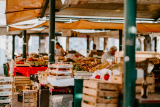
Join us during this event about food cultures and growing food in a super diverse city on Dec 9 | 20:30h at Pakhuis de Zwijger.
More than 180 nationalities have settled in the super diverse city of Amsterdam. All these cultures and culinary traditions can be found in the many eateries, living rooms and markets. They are an important part of a neighborhood's urban culture. In this program we go on a tasty journey through Amsterdam Southeast. We talk about the rich variation in culinary traditions and eating habits and how these can disappear or change with the transformation of the district.
Registration
This event takes place at Pakhuis de Zwijger and is organized in collaboration with AMS Institute. Register for this event here.
This event will be in Dutch.
Communication Alliance for a Circular Region (CACR)

De taskforce Communication Alliance for a Circular Region (CACR) wil de circulaire economie in de Metropoolregio Amsterdam versnellen met praktische verhalen voor en over ondernemers en bedrijven. We nodigen iedereen uit mee te doen met de discussie op amsterdamsmartcity.com. De CACR bestaat uit: Hogeschool van Amsterdam | Gemeente Amsterdam | Amsterdam Economic Board | Amsterdam Smart City | Metabolic en AMS Institute.
Artikelen 'Circulaire economie en data'
• Volop kansen in de nieuwe circulaire werkelijkheid / Data zijn de zuurstof van de circulaire economie: deel 1
• Slim datagebruik in de circulaire economie: de drie belangrijkste redenen / Data zijn de zuurstof van de circulaire economie: deel 2
• 100.000 bedrijven restafvalvrij in 2025
• Slim datagebruik in de circulaire economie: dit is wat bedrijven zelf kunnen doen / Data zijn de zuurstof van de circulaire economie: deel 3
Artikelen circular strategies
Maak je bedrijf toekomstbestendig met deze circulaire strategieën
--------------------------------------------------------------------------------
The taskforce Communication Alliance for a Circular Region (CACR) is working to accelerate the circular economy in the Amsterdam Metropolitan Area, sharing practical stories for and about entrepreneurs and businesses. The CACR is an initiative by Amsterdam University of Applied Sciences | City of Amsterdam | Amsterdam Economic Board | Amsterdam Smart City | Metabolic | AMS Institute.
Articles 'Circular economy and data'
• A wealth of opportunities in the new circular reality / Data is the oxygen that the circular economy thrives on: part 1
• Smart data usage in the circular economy: 3 key reasons / Data is the oxygen that the circular economy thrives on: part 2
• 100,000 companies residual waste-free by 2025
• Smart data use in the circular economy: this is what companies can do themselves / Data is the oxygen that the circular economy thrives on: part 3
Articles: Future-proof your business using circular strategies
Wicked Problems
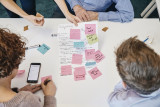
Te wicked? Niet voor ons.
Wij werken allemaal aan urgente, complexe, maatschappelijke uitdagingen. Issues die schier onoplosbaar lijken, van dilemma’s en paradoxen omgeven, nog niet duidelijk hoe het moet. Wel is duidelijk dát het moet, dat we elkaar nodig
hebben en dat we er NU aan moeten beginnen. Om met de woorden van Jan Rotmans te spreken; we leven niet in een tijdperk van verandering maar in een verandering van tijdperk. En hier hoort een nieuwe gereedschapskist bij.
En of je nou aan energietransitie werkt, andere mobiliteitssystemen, creëren van waterstofhubs, peer to peer autodeelsystemen, het maakt niet uit, we zien dat al deze opgaven op enig moment tegen gelijksoortige barrières aanlopen. Op samenwerking, financiering, privacy, onvoldoende aansluiting op de maatschappij, om maar een paar voorbeelden te noemen.
Unieke samenwerking
Als Amsterdam Smart City netwerk willen en kunnen we deze opgaven niet laten liggen. Door het bundelen van onze kennis en expertise kunnen we als netwerk iets unieks bieden en de wil en durf tonen om deze barrières te doorbreken. De betrokken partners die dit uitdenken en begeleiden zijn RHDHV, Kennisland, Drift, NEMO, Arcadis, Alliander, HvA en Metabolic. Zij bundelen hun expertise en ervaring om de echte vragen boven tafel te krijgen, tot nieuwe manieren van samenwerken te komen en barrières te doorbreken. We richten ons met name op de start van de samenwerking. Gezamenlijk ontwikkelen we een ‘wicked problem aanpak’. Op een nieuwe manier, lerend door te doen, exploratief.
Waar moet je aan denken?
Wat is eigenlijk het echte probleem? Wiens probleem is dit? Hoe kijken anderen er tegenaan? Welke andere partijen lijken nodig? Hoe vind je ze? Hoe ga je om met eigenaarschap en botsende frames? Hoe zorg je dat je al in
een vroeg stadium de maatschappij (bewoners, ondernemers, werknemers, etc) betrekt en hun ervaringen in het project trekt? Het wicked problem team zet nieuwe methoden in voor het beantwoorden van deze vragen. En het creëren van de benodigde commitment om het vraagstuk aan te pakken. Niets staat van te voren vast, want we passen ons aan aan wat we tegenkomen. Met elkaar ontwikkelen we een nieuwe aanpak om de barrières te doorbreken.
Je koffiedrab duurzaam laten ophalen, circulair verwerkt!
Ben of ken jij eigenaren van horecazaken en bedrijven waar wij kunnen helpen bij het gescheiden inzamelen van koffiedrab? Wij zijn op zoek en horen het graag in de comments.
Door met Seenons je afval - nee reststromen - gescheiden op te laten halen wordt het duurzaam opgehaald en circulair verwerkt. En kunnen hier weer mooie producten van worden gemaakt die anders zouden zijn verbrand.
Het inzamelen gebeurt uiteraard op de meest duurzame manier, want in samenwerking kunnen wij de koffiedrab in geheel Amsterdam ophalen met de elektrische wagens van onze partners GroenCollect BV en Pantar.
Van deze koffiedrab kunnen we heel veel mooie circulaire producten maken zoals bijvoorbeeld de zeep van Kusala Gifts of de personal care producten van Unwaste.
Samen maken we de cirkel rond!
Kijk voor meer informatie:
https://seenons.com/koffie/
Bees Digital Farm

Ever since the 20th century most of the countries across the globe are still using the traditional way of farming and it’s still going on for the demand and supply of people. As we all know that by the year 2050, the 80 % estimation of the world population will have been living in urban areas which can lead the total population of the world to increase by 3 billion people. With this large amount of increase in population, scientists and researchers are quite worried about the farmland which will be required to generate such a huge demand for food supply to fulfill the necessity to survive. Noticing this fact in mind as what would be the future source of alternative solutions to solve such a type of problem a concept was proposed named “In-House Farming”.
Future of Fashion: Lab Tour with Spinnova

On the 30th of June, Spinnova opens their doors for virtual tour of their lab and offices – giving a behind-the-scenes look at how they are shaping the future of fashion by creating more sustainable fibres. Spinnova’s ground-breaking innovation turns wood pulp into fibre without the use of harmful chemicals. These fibres can be recycled several times over and the entire process uses up to 99% less water than conventional cotton.
Join our guide Lotta Kopra, Chief Commercial Officer at Spinnova, who will share insights into their process as well as what the future holds for Spinnova, along with Fashion for Good’s Innovation Manager Georgia Parker as moderator.
Circulair ondernemen, doe je samen

In de transitie naar een circulaire economie worden ondernemers steeds meer gevraagd na te denken over onze keten en hoe we inkopen. Hoe transparant moet je zijn naar je klanten? Wat mag je verwachten van je leveranciers? Hoe denk je in oplossingen in plaats van problemen? Je wilt wel innovatief zijn, maar hoe en wie gaat dat betalen?
Om ondernemers te helpen bij deze vraagstukken, organiseren we deze circulaire meetup dat volledig in het teken staat van samenwerking in de circulaire economie. De meetup wordt geopend door expert Erick Wuestman die zijn inzichten deelt over het belang van samenwerking om uitdagingen in een circulaire economie aan te gaan en de transitie te versnellen.
In de transitie naar een circulaire economie worden ondernemers steeds meer gevraagd na te denken over onze keten en hoe we inkopen. Hoe transparant moet je zijn naar je klanten? Wat mag je verwachten van je leveranciers? Hoe denk je in oplossingen in plaats van problemen? Je wilt wel innovatief zijn, maar hoe en wie gaat dat betalen?
Om ondernemers te helpen bij deze vraagstukken, organiseren we deze circulaire meetup dat volledig in het teken staat van samenwerking in de circulaire economie. De meetup wordt geopend door expert Erick Wuestman die zijn inzichten deelt over het belang van samenwerking om uitdagingen in een circulaire economie aan te gaan en de transitie te versnellen.
Voor wie? ondernemers en meedenkers!
Ondernemers | Tijdens dit event krijg je als ondernemer de kans om een eigen casus in te brengen waaraan gezamenlijk wordt gewerkt. Casussen op het gebied van circulair ondernemen staan centraal, daarbij valt te denken aan de volgende uitdagingen:
- Circulair ondernemen in de voedingsindustrie
- Circulaire plastics
- Circulair ondernemen in de textielindustrie
- Circulaire businessmodellen
Meld jouw casus gratis aan via het aanmeldformulier.
Meedenkers | Wil je graag meedenken met uitdagende casussen op het gebied van circulair ondernemen, vanuit jouw praktijkervaring, expertise, opleiding of interesse? We nodigen circulaire ondernemers, beleidsmakers, circulaire experts en andere circulaire initiatiefnemers uit om mee te denken!
Meld je gratis aan via deze Eventbrite pagina.
Datum
Het event vindt online plaats op 25 juni van 15.00 uur tot 17.00 uur.
Programma
15:00 - 15:15 Welkom
15:15 - 15:45 Spreker Erick Wuestman, over het belang van samenwerken voor een circulaire economie en de rol van circulair inkopen.
15:45 - 16:30 Crowdsolve your challenge
16:30 - 16:45 Afsluiting en vervolgstappen
Doe mee en werk samen!
- Ontmoet collega-ondernemers en experts op het gebied van circulariteit in de Provincie Noord-Holland
- Krijg waardevolle input vanuit verschillende invalshoeken voor je eigen vraagstukken en/of help (andere) ondernemers met jouw expertise.
- Krijg concrete tools om circulariteit te versterken in jouw bedrijf en pas het toe na de meetup.
- Maak impact en werk aan zaken waar je echt omgeeft.
Circulair Ecosysteem
Dit event is georganiseerd door Impact Hub Amsterdam en de provincie van Noord-Holland. De provincie Noord-Holland en Impact Hub Amsterdam werken samen om circulaire ondernemers met elkaar in contact te brengen om de transitie naar een volledig circulaire economie in 2050 te versnellen.
Vote for Johnny Cashew @Kraak de Crisis
Did you know that your cashew nuts travel 12.500 km more than is required before it hits the shelves in your supermarket? Johnny Cashew sources cashew nuts directly from Africa (Tanzania, to be precise). Our nuts ensure a good price for the farmers, reduced food miles for transport and from the profit we make we plant cashew trees in Tanzania.
Out nuts taste good, look good and do good!
We look for your support to vote for us at Kraak de Crisis, an initiative that supports new ideas to fight the crisis.
https://www.kraakdecrisis.nl/deelnemers/157
With your vote we can get free advice from PWC and, above all, 25.000 euros to kick off!
Lots of love from Johnny Cashew x
Johnny Cashew
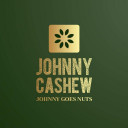
Be a superhero! Our cashew travel 12.500 km less than the cashew you will find in your local supermarket and they are better for the farmer, the environment and you.
Did you know that 90% of all cashew nuts travel 27.000 km before they end up at a store near you (3/4 the glove)? Did you know that Africa is the world largest producer, but that 90% of the nuts are being processed in Vietnam & India under harsh conditions, only to be shipped all the way back to the Netherlands?
Neither did we...
But as soon as we realized this, we started this project: Johnny Cashew. We decided to ship cashew straight from Tanzania, while making sure the farmer and the local processor got a fair price. Also, we found a home for the broken cashew nuts that are normally cast aside: we started workshops in Amsterdam to turn them into bars, pasta and maybe also a dressing on your next ice cream :).
Part of our profits will go to planting new cashew trees in Tanzania: good for the farmer, the environment and your karma.
In other words: our nuts taste good, look good and do good!
More info at www.JohnnyCashew.com
Campus Amsterdam Living Room Session #1 met Amsterdam Green Campus

Wij brengen de changemakers van de campussen en hubs in de kennisregio Amsterdam naar jouw woonkamer! Hoe? Je zet een kopje koffie, neemt plaats op een comfortabele stoel en klapt je laptop open. In iedere sessie staat een campus of hub centraal, die zijn eigen hot topic bespreekt.
AMSTERDAM GREEN CAMPUS TRAPT AF
Tijdens de eerste Living Room Session staat Amsterdam Green Campus centraal. Het groene innovatienetwerk is sinds 2016 bezig om projecten - gericht op stedelijke duurzaamheidskwesties - aan te jagen en te faciliteren. Directeur Niek Persoon zal ons meenemen in de werkwijze en projecten. Ook leren we meer over hun Student Lab: de plek waar mbo-, hbo- en wo-studenten samenkomen om te werken aan projecten.
VERBINDEN DOOR BREAK-OUT SESSIES
Een passieve sessie wordt het absoluut niet. Er is alle ruimte voor interactie en het stellen van vragen. Daarnaast gaan we ons best doen om gelijkgestemden met elkaar te verbinden in break-out sessies.
PROGRAMMA
08.20 | Online room is open
08.30 | Welkom en inleiding door Campus Amsterdam
08.50 | Presentatie door Amsterdam Green Campus
09.10 | Q&A
09:30 | Reflect & Connect
10:00 | Afronding
Wil je hierbij zijn? Ga naar onze website om je aan te melden: https://bit.ly/2Xwkt4O
HANDIGE LINKS
www.campus.amsterdam
www.amsterdamgreencampus.nl
CAMPUS AMSTERDAM
Campus Amsterdam is een netwerk van campussen, innovatiedistricten en labs in metropoolregio Amsterdam. Ons doel is om mensen, kennis en faciliteiten in onze diverse kennisregio met elkaar te verbinden, zodat we samen kunnen werken aan urgente, stedelijke vraagstukken.
Speaking opportunity at the Smart City Expo World Congress in Barcelona!
The Smart City Expo World Congress in Barcelona is thé leading smart city event in the world. The programme of the Smart City Expo World Congress (17-19 November 2020) includes a variety of industry leaders, city authorities and urban innovators who come to the event to shed light on the event's tracks on stage during the congress.
The tracks are Digital Transformation, Urban Environment, Mobility, Governance & Finance and Inclusive and Sharing Cities. Is your innovative company active in one of those sectors and are you interested in sharing your ideas with a wide audience?
Submit your proposal for speaking at the Smart City expo before 11th March via http://www.smartcityexpo.com/en/call-for-speakers-2020!
Week of the Circular Economy #8: InStock
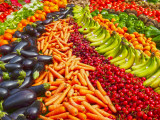
Instead of delicious food being thrown out, InStock redirects it onto a plate. In this interview, Freke van Nimwegen, founder of InStock, explains how they rescue fresh and healthy produce in the Netherlands from going to the landfill. With one-third of all the food in the world binned which was cultivated for consumption, it’s not just the food that’s wasted but the energy of farming, processing and transporting. This innovative initiative has set out to find solutions. They have their own restaurants serving rescued food, a marketplace for restaurants to buy fresh produce otherwise destined for the bin, and also offer beer and granola products made from ‘food waste’.
Here is an excerpt from this interview:
What can you tell me about the problem of food waste, how do you tackle it and how much food have you saved?
One-third of all food is wasted, and that happens mostly at the beginning and the end of the food chain. Right now at InStock we’re mostly focusing on the primary industry, so the food that is either at the farmers, producers, packaging companies or the broker. There is a lot of waste already before the retailer food companies even get it so we focus on their products that would be wasted otherwise, but are still perfectly fine. We then bring it to our restaurants as well as others to make sure it’s used. We have now saved close to 900,000 kilos from going in the bin.
What is the story of the InStock restaurants?
We started the restaurants in 2014 and our press release got so much attention we were fully booked immediately. We now have restaurants in 3 locations, one of them is in the political heart in Amsterdam which is great to create awareness, as politicians come to eat there. We have found really creative chefs who create lunch and dinner with whatever comes in. They used to have to make new recipes often, but over the years we’ve been able to establish a database of recipes to handle whatever comes in. For example, if beetroots come in we have a recipe for beetroot risotto which we can make for three weeks or three days depending on the quantity. We now have more and regular suppliers with larger quantities so we have a better prediction of what we are going to get. Also our creative chefs have come up with recipes that we have made a cookbook out of.
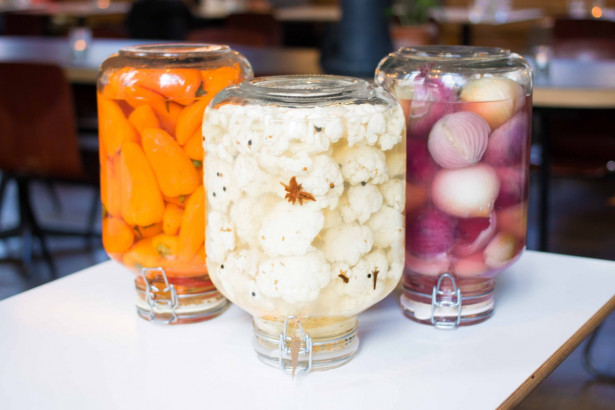
Could you tell me more about the beer and granola products that have been made from rescued food?
Because some products are wasted more than others we tried to see what we could use them for. So together with a local Amsterdam brewery, we made Pieper Bier from rescued potatoes and Bammetjes beer from rescued bread. From this collaboration we discovered that the grain which is left over after making beer at breweries, is still a very nutritious product with a lot of fibers and protein, so we use that as the base for our InStock Granola.
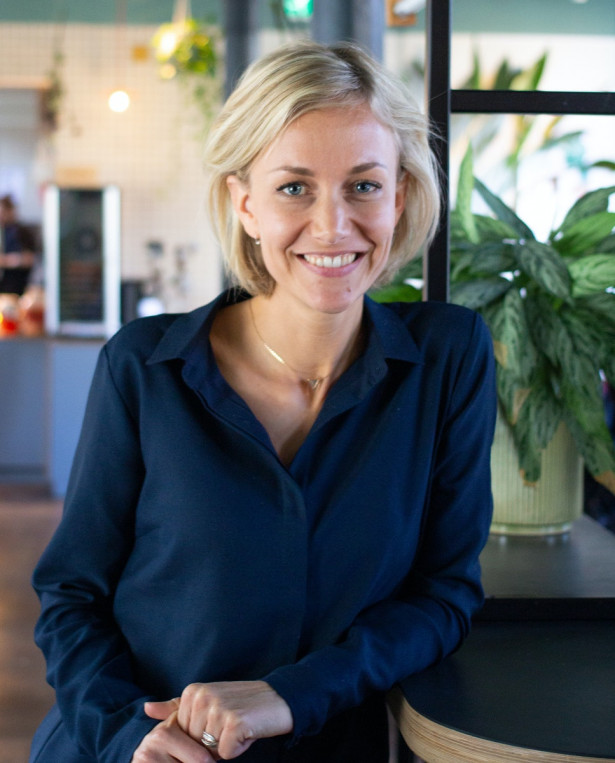
What do you think are the biggest barriers to getting more initiatives to use food waste?
In general, our whole system is based on a linear economy. The business case for a circular product is hard because it takes more time and money to get products that would be wasted otherwise. So, for example, it would have been cheaper for us in the beginning to just buy it at the wholesaler then what we were doing. But right now we're just seeing that as we are scaling up, with more suppliers and higher quantities delivering to InStock, then it becomes cheaper. It’s the same for packing and plastics, a lot of people want to work with recycled plastic but if it’s so much more expensive than normal plastic then why would they? Taxes could play a big role in this because now we are taxing income, but if we taxed resources then it would become a lot more interesting for companies to work towards circular business.
Could you tell me more about the ‘zero waste hierarchy’ and what you think are the best solutions?
The summary is to reduce, reuse, recycle, in that order. For us, of course, if you can prevent products or food from becoming waste, that’s better. After this, we reuse and recycle. If the food is not edible anymore then at least keep the value as high as possible. So for example, make compost out of it or animal feed from it instead of burning it or throwing it into the landfill.
<https://www.metabolic.nl/news/ready-to-stock-up-on-food-waste/>
Introduction meeting GO!-NH Accelerator Sustainable Innovation 2020

Introduction meeting GO!-NH Accelerator Sustainable Innovation 2020
With the help of these introduction meetings, you will get to experience the program and learn from participating teams about what the previous programs brought them.
February 10th 2020 - IDEA, Alkmaar - 15:30 - 18:00
Apply through Eventbrite: https://gonh2020-11feb.eventbrite.nl
ABOUT GO!-NH
The GO!-NH Accelerator puts SMEs and start-ups on the fast track to development. New ways of thinking, new skills and new partners are a must. This programme is all about circular economy, targeting sta-ups, innovative SMEs, large organisations and institutions. GO!-NH brings together all the relevant parties to activate, connect and develop this sustainable innovation ecosystem.
In a three-month programme you’ll go from concept to a business offering innovative solutions that’s ready to take the market by storm. Training sessions, tools and professional support from expert practitioners will help you in developing your business in a sheltered environment. The progress you make during these few months would normally take a full year. GO!-NH is a joint venture of the province of North Holland and Innomics.
The Accelerator program enables startups, innovative SMEs and innovation teams from large organizations to convert ideas into new business models in a short time and to accelerate customer and product development in order to shorten the time to market. You develop your business with training, tools and professional support from experts.
Stay up to date
Get notified about new updates, opportunities or events that match your interests.

